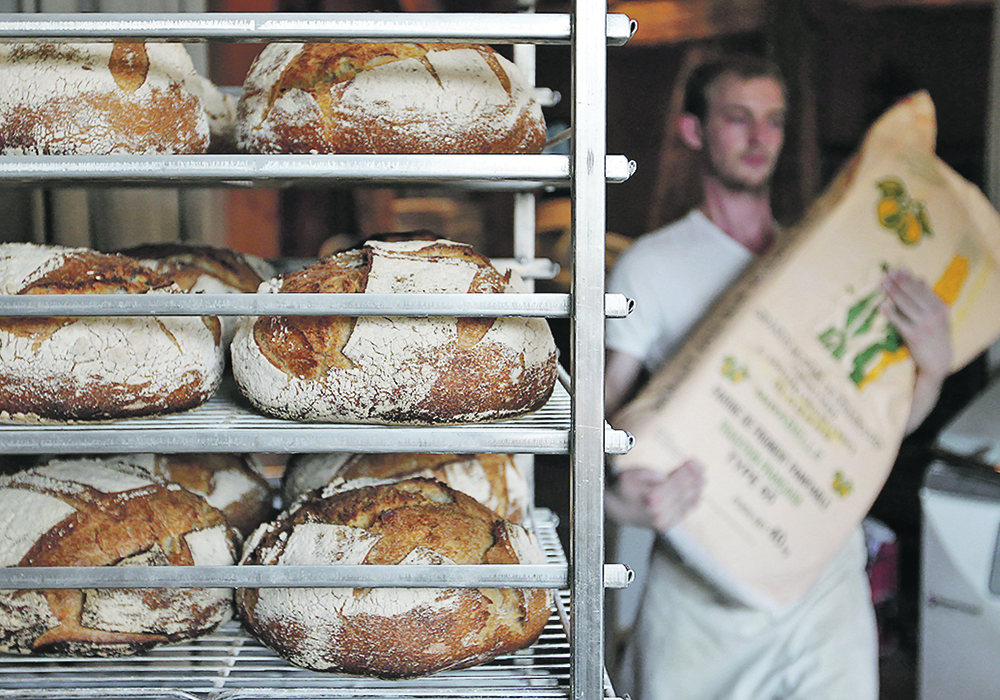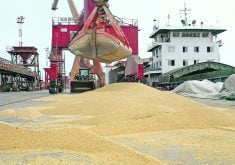U.S. Wheat Associates claims country is dumping wheat flour and failing to comply with World Trade Organization rules
Turkey is not playing by the rules when producing and exporting wheat flour, according to U.S. Wheat Associates.
“Turkey maintains a web of substantial domestic support programs that incentivize the overproduction of Turkish flour, which is dumped into overseas markets below global price levels,” the group alleged in a recent blog post.
USW said the dumped flour is affecting domestic milling around the world and hurting U.S. wheat exports to the tune of US$100 to $500 million per year.
Leif Carlson, director of market intelligence and trade policy with Cereals Canada, said Canada supports USW’s position on Turkey.
Read Also

Flax sector sees omega-3 opportunity
SASKATOON — A global shortage of omega-3 oils could be an opportunity for the flax sector, says an industry official….
“It’s important that trade conditions in wheat markets are monitored,” he said. “We support rules-based trade and it’s important to Canadian exporters that our competitors, or other exporters around the world, follow the WTO agreements they made.”
USW contends Turkey is failing to properly disclose its subsidies to the World Trade Organization.
Developing nations are capped at 10 percent for the aggregate measure of support. USW said Turkey is far exceeding that amount with minimum support prices that surpass global market prices.
WTO member countries are required to report domestic support spending annually, but Turkey hasn’t done so since 2016.
“Turkey needs to be transparent and pushed to submit timely and accurate notifications that cover all programs, including product-specific input subsidies that are available to wheat farmers,” USW said in its annual report of trade irritants submitted to the U.S. Trade Representative.
It said lack of transparency is troubling given that Turkey is by far the world’s largest exporter of wheat flour.
Turkish millers receive certificates to import duty-free wheat when flour is exported, another policy that USW feels should be examined by the WTO.
WTO rules say countries must be able to verify that the wheat imported duty-free is of the same quantity, quality and characteristics as the domestic wheat that was used in the exported flour.
“We have found no evidence of such a verification system,” the USW said in its report. “If Turkey does not maintain such a verification system, it is in violation of WTO rules.”
The concerns over Turkey’s flour exports first came to light in 2013 when Indonesia imposed trade remedies in response to Turkish flour entering the market at prices well below those of other exporters and domestic mills.
The Philippines imposed anti-dumping duties against Turkish flour in 2014 and granted an extension in 2020.
Imports of Turkish wheat flour by both countries have since fallen off. For instance, the Philippines imported 6,000 tonnes in 2021, down from a peak of 162,000 tonnes in 2012.
Other affected markets include Angola, Haiti and Iraq. Iraq is now by far the largest market for Turkish flour.
“Turkish flour exports undermine U.S. wheat exports more than other types of export subsidies on wheat because flour export subsidies can put entire milling industries out of business, depriving U.S. farmers of potential customers,” said USW.
The organization also had complaints about Brazil, China, the European Union, India, South Africa, Thailand, the United Kingdom and Vietnam.
Canada did not escape criticism. USW says the inclusion of criteria unrelated to quality or marketing in Canada’s variety registration system serves as an unnecessary barrier to the registration of U.S. varieties.
For instance, it said agronomic concerns should be irrelevant for U.S. wheat varieties where the primary purpose of registration is importation.
USW also says Canada’s railway revenue cap acts as an export subsidy by lowering freight rates.
“This allows Canadian exporters to be more competitive than U.S. exporters when purchasing wheat from a similar distance inland,” said USW.
It added that the federal government’s provision of hopper cars is another form of export subsidy.
USW estimates that Canada’s “export subsidies” are costing U.S. farmers $50 to $100 million per year in lost wheat sales.
Carlson said the maximum revenue entitlement (MRE) program is not an export subsidy. It is a way to balance the power in a system where two national railways carry most of the grain to market.
“The MRE is there to protect shippers against the market power that those two service providers may have in parts of Western Canada,” he said.
He pointed out that, over time, there has been a move toward more private provision of rail cars.
“It has been an area of investment in the supply chain in Canada over the past number of years,” said Carlson.
















